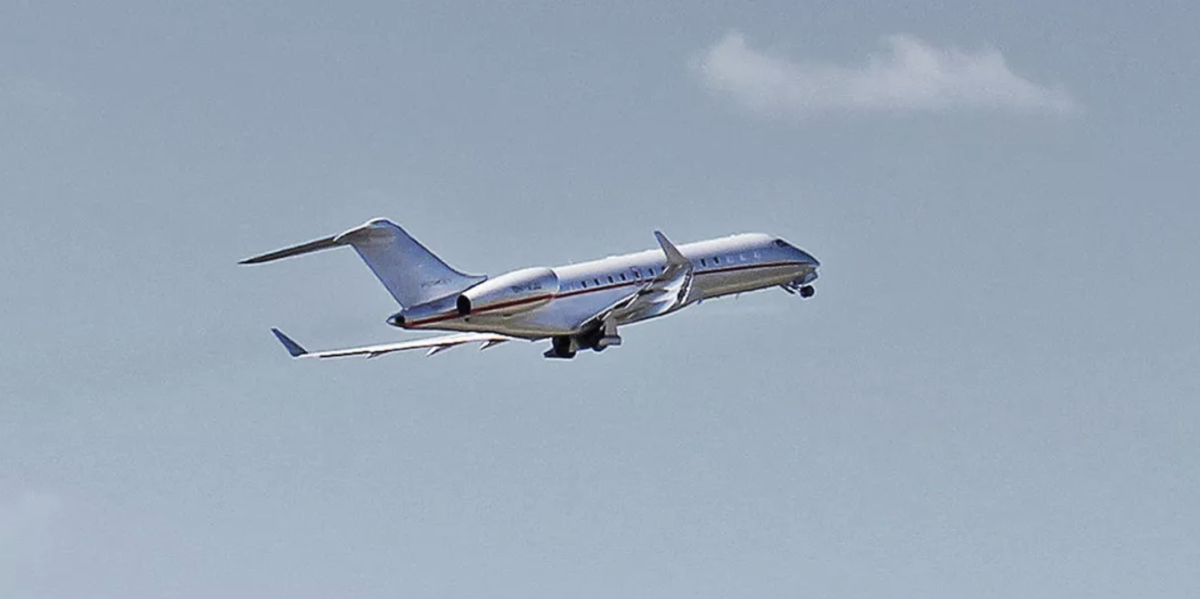

VistaJet, which along with XO, makes up Thomas Flohr’s Vista Global Holdings, is staking out a leadership position in the discussion about climate change.
The company announced during the World Economic Forum in Davos today both a white paper outlining key facts and a slew of initiatives it is taking to help offset carbon emissions from the company.
One key fact it notes is if aviation were a country, it would rank 20th in the world in terms of gross domestic product (GDP), generating $704.4 billion of GDP per year, considerably larger than some of the members of the G20, and around the same size as Switzerland.
In the white paper, titled, “Sustainability in Aviation,” it points out global aviation produces only around 2% of all human-induced CO2 emissions – or 895M tonnes of CO2 versus 42B tonnes.
While business aviation is often a lightning rod for activists, private aviation’s current share of the aviation industry’s global footprint is just 2% of the broader industry, so 2% of 2%, or just 0.04% of global CO2 emissions.
VistaJet also points out around 80% of aviation CO2 emissions are emitted from flights of over 1,500 kilometers, for which there is no practical alternative mode of transport.
Moreover, the white paper points out aviation today is 80% more fuel-efficient than in the 1960s.
In terms of what it’s doing, VistaJet outlined a series of initiatives:
VistaJet, which flies about 70,000 passengers per year, is launching a program investing in certified carbon credits. Contracts will now include a carbon compensation option for all new Program membership contracts (its version of a jet card) and on-demand global live charter flights and ferry flights.
To execute the offsets, VistaJet has selected emission reduction projects “of exceptional quality, adhering to the highest environmental standards and holding additional certifications.”
The company said, in addition to reducing global greenhouse gas emissions, VistaJet projects support the well-being of local communities in the countries the company flies to.
VistaJet is offering Program Members who book with a least seven days’ notice discounts on their fixed hourly rates. It says early booking helps it manage fleet movement more efficiently. This means fewer planes repositioning, and less unnecessary fuel burn.
It is also asking customers to consider driving to a nearby airport if the aircraft is already positioned there saving a short flight. It says last year customers helped us reduce movement around London airports by 20%, saving several tCO2.
VistaJet said it has launched a comprehensive program to automate flight optimization and global fleet management, promoting more efficient aircraft capacities and optimum aircraft loading procedures.
Through investment in AI and machine learning technology, VistaJet said it is working on predictive routes algorithms in an effort to minimize ferry flights and reduce fuel consumption across its entire operations, across all its companies, anywhere in the world.
The program, launched in 2019, will proceed onto its testing phases throughout 2020, to guarantee major improvements in business efficiency and reduction of impact per flight.
VistaJet added it is committed to using sustainable alternative jet fuels.
While currently, there is only a handful of hubs where sustainable aviation fuel is available, VistaJet is asking fuel companies to produce alternative jet fuel in sufficient quantities and to make them available across more locations to support global air travel to have an effective impact on the emissions.
To further push producers, VistaJet will start lobbying efforts alongside leading manufacturers and operators.
VistaJet said it has already removed over 90% of single-use items from its cabin and replaced them with sustainable alternatives, including its onboard amenity kits.
It has also switched to more sustainable materials, such as using glass bottles instead of plastic, or packaging products using starch that fully biodegrades in one year.
Finally, it is substituting more on-board products with ones made with more sustainable materials, such as bamboo or vegetable sources.
VistaJet said it will partner with carbon-neutral companies whenever possible and has started restricting its requirements for all purchasing partners, including sustainability accreditation for third parties across all departments in the business.
During 2020, VistaJet will go through a full audit across the entire business to assess further possibilities and developments. VistaJet says it is “adamant about extending its push to be a sustainable-first company.”
VistaJet said it is estimating the carbon footprint of its operations and offices worldwide in accordance with the principles of the GHG Protocol Corporate Accounting and Reporting Standard.
The result will be defining an emissions reduction strategy and identifying further greenhouse gas emissions reductions opportunities across the business.
To execute its offset program, VistaJet announced the projects it will support.
Located in rural Sumatra, this run-of-river hydroelectricity project harnesses the flow of the Musi River to generate clean energy for the grid. The project supports local jobs, new income streams, and has funded infrastructure improvements as well as a reforestation program.
Located in an area renowned for its panda population and subtropical biodiversity, this project in China provides efficient cookstoves to people predominantly of the Yi ethnic minority, avoiding deforestation and smoke emissions.
This project supports the expansion of numerous wind farms across the country to harness the prevailing coastal winds, providing the island with clean, renewable energy. The project also boosts sustainable development initiatives, such as guided tours to raise climate change awareness.
The Envira project in Brazil’s Amazon basin protects 39,300 ha of tropical forest from logging and cattle ranches. This preserves the area’s rich biodiversity. Economic opportunities for local communities are fostered through sustainable farming, health services, and education.
The Kariba project has protected nearly 785,000 hectares from deforestation and land degradation, preventing CO2 emissions from being released. The project supports sustainable development with improved healthcare and education, conservation agriculture, beekeeping training, and ecotourism.
Earlier this year U.K.-based charter broker Victor announced a carbon offset program, while more recently jet card sellers Private Jet Services Group and Paramount Business Jets also introduced plans.